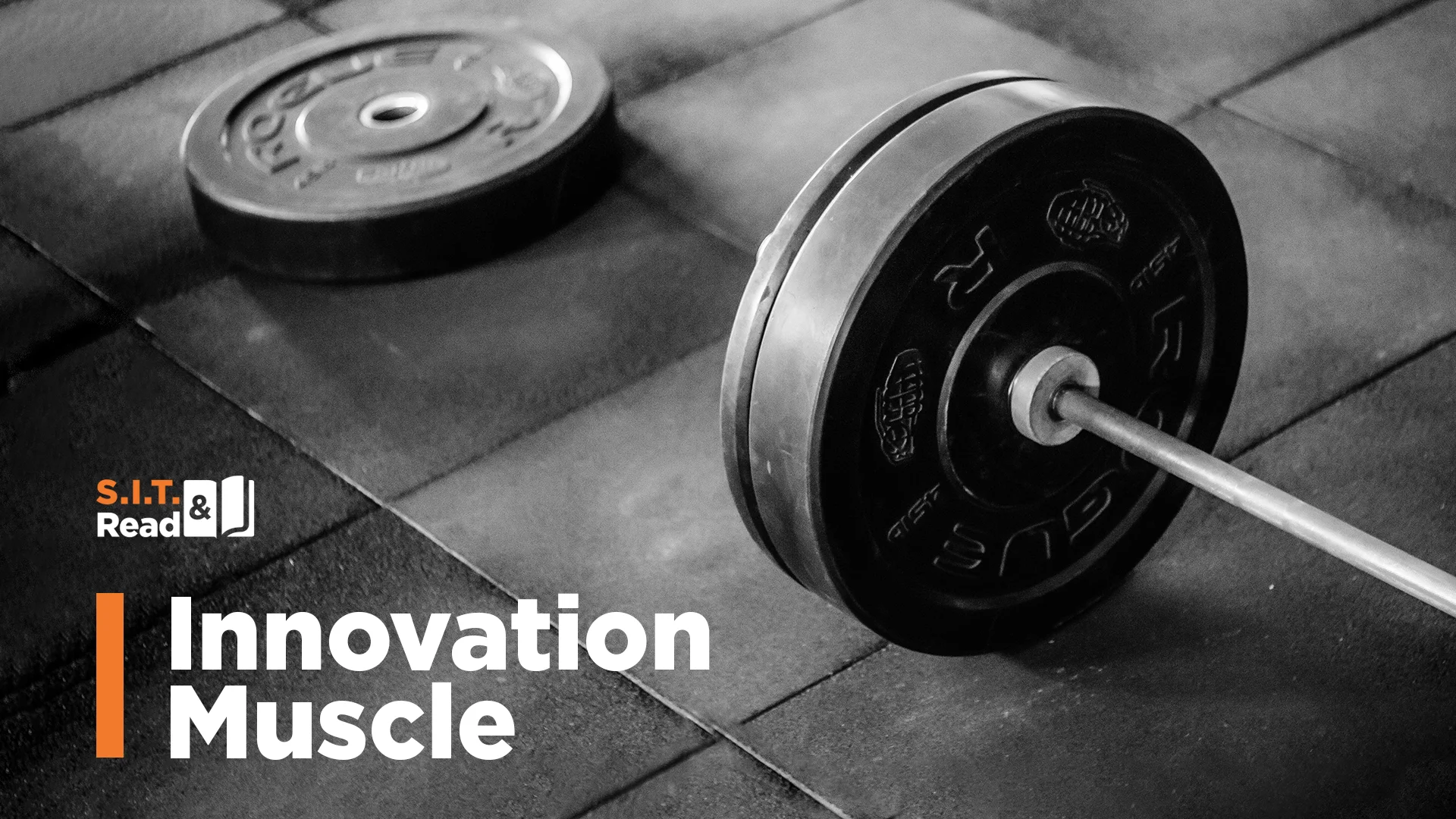Innovation Muscle


The best Fortune 100 companies see innovation as an ongoing capability, not a one time event. These companies work hard to build muscle around this capability so they can deploy it when they need it, where they need it, tackling their hardest problems. Companies do this to keep up with the ever changing landscape both inside and outside the firm.
What does it mean to build innovation muscle? I think of it as the number of people trained, the frequency of using an innovation method, and the percentage of internal departments that have an innovation capability. Call it an Innovation Muscle Index:
N (number of trained employees) x F (number of formal ideation events per year using a method) x P (percent of company departments with at least one employee trained in an effective innovation method)
IMI = N x F x P
Building innovation muscle is not much different than building body muscle. Let’s turn to an authority, http://www.muscleprogram.com/, and see how to build body muscle. Here is an exact quote taken from that website. Then I have overlaid my interpretation of it from an innovation point-of-view in parenthesis and in bold font.
“You need to decide what kind of (innovation) muscle form you’re looking to achieve. Drawing on examples nearly everyone is familiar with, you need to decide if you want to look like Arnold (GE) Schwarzenegger (bigger bulk) or Bruce (Apple) Lee (lean and toned). This decision will help you determine which kinds of exercises you do and how you do them.
Now, with all of that out of the way, let’s look at some things you can do to build your (innovation) muscles!
If you don’t already, start getting your body (company) used to working out. Start running (innovating) every day, not jogging (brainstorming) or walking (copying others), to help get your blood (growth) moving and your (innovation) muscles primed for building. You’re not running a race so you don’t need to be a speed demon. Instead, maintain a comfortable and steady pace, taking long and powerful strides (initiatives).
If you want to have the lean, Bruce (Apple) Lee appearance, you need to work with lighter weights and have a higher number of repetitions (innovation workshops) in each set. By doing this, you are toning and shaping your (innovation) muscles into longer and thinner forms. If you want the Arnold (GE) look, you need to work heavier weights (more departments using innovation) and do fewer repetitions. By doing this, you are toning and shaping your (innovation) muscles into short and thicker forms.
Ensure that you have a regular plan, focusing on specific (innovation) muscle groups, and stick to it. Don’t try to work every (innovation) muscle in your body every day of the week. At best, this will lead to burnout (budget crunch) and at worst it will lead to injury (downsizing). Your (innovation) muscles will be getting worked hard, so they need to have time to recuperate.
However, you should rotate your plan every month. For example, let’s say that you are working on your chest, shoulders and biceps (new products) on Monday; your abdomen, forearms and upper back (new services) on Wednesday; and your lower back and legs (new strategies) on Friday. Every four weeks, rotate one day so that you’ll be working on your lower back and legs on Monday; your chest, shoulders and biceps on Wednesday; and your abdomen, forearms and upper back on Friday. The following month, rotate one more day.
This will allow each of your (innovation) muscle groups to take advantage of the fact that you probably workout differently on each of those days. If you simply stick with the exact same schedule forever, then you’ll find yourself quickly running into what are known as “plateaus,” where you just can’t seem to build that (innovation) muscle group past a certain point. With a rotation schedule, you will avoid this problem by giving each (innovation) muscle group the benefit of your natural changing body (company) rhythm.
If you keep these general guidelines in mind and consistently work at your plan with passion and intensity, your body (company) will be more toned (competitive) and shaped (growing) than you ever imagined it could be. While it won’t happen overnight, it probably won’t take as long as you’re afraid it will.”
Recent Posts
Innovation Behavior
Innovation is a skill, not a gift. Top organizations drive growth by nurturing and investing…
Should you learn TRIZ? – Yes. ….and No.
Are you in the world of problem solving? Is problem solving a skillset you have…
What Lies Ahead in 2024?
5 Data-Driven, Customer-Centric trends we’ve identified This is not just another conventional forecast. Over nearly…
Fork or Chopsticks – Which Innovation Tools Do You Use?
Imagine a chef, who only uses a spoon. Imagine a dentist, who only uses a…
The Moat Mentality: Exploring New Frontiers in Innovation Methodologies
In investing and business strategy, we often speak in terms of moats. Warren Edward Buffett…
Was it a Breakthrough or an Adjacency?
This year, P&G’s Febreze celebrates its silver anniversary as a brand. But not all 25…


